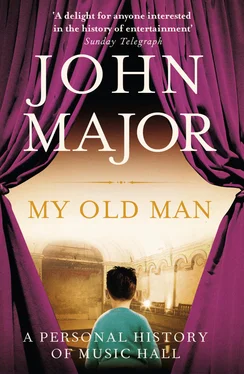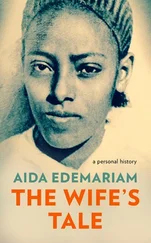Somehow, word of my father’s plight spread. Strangers, often eccentric men and women, would arrive at our door. Careworn, often shabbily dressed, they were all of my father’s vintage, or near to it. Prosperity, if it had ever touched them, had long since fled. Some were talented, some loveable; some both, some neither. But all had the urge to entertain. Often vulnerable, they were intensely human in their wish to give pleasure, in their thirst for applause and in the love they had for their profession.
They sat at my father’s bedside drinking whisky until supplies ran out, and then called for tea. If their conversation was stilted at first, it soon became intimate. Memories were stirred, emotions flowed. Old stories were told, old times remembered – no doubt, as Shakespeare put it, with advantages. Sometimes, these reunions became uproarious, and tears of mirth rolled down their and my father’s cheeks. Sometimes emotion overcame them, and tears of a different kind were wiped away.
I can see and hear them still. I saw how cheers and applause had filled their lives, and for a short time they were back there, in the good old days, positively aglow with their reminiscences, a fierce joy in their hearts. They were full of generous impulse. They treasured their remembered triumphs, but had not forgotten the flops, the rejections, the let-downs, the days without work, the lash of critical opinion. It was not until years later, with the political critics poised, invective flowing and the national audience restive, that I fully understood all the emotions that had been so familiar to them.
I listened avidly as they talked of their shared past. They were born to perform. Onstage they had come alive. The career they chose was one in which fame and fortune was elusive, but heartbreak was not. Few had enjoyed great material rewards, although they talked with affection and without envy of those who had been successful. Once, several guests around my father’s bed argued over whose songs had the most memorable choruses. Was it Florrie Forde or Harry Champion? An impromptu concert ensued, in which ‘Pack Up Your Troubles’ and ‘Down at the Old Bull and Bush’ competed with ‘Any Old Iron’ and ‘I’m Henery the Eighth, I am’ before a draw was declared. At the time it seemed there was an unending flow of guests, but memory plays tricks. There were perhaps fifteen in all. But the pleasure their presence gave to my father was disproportionate to their number.
Many years later, when I became a public figure, some commentators wrote disparagingly of my parents and their profession. My parents may not have had much in the way of possessions or money, but as human beings, in their kindness and goodness, they were richer than most. And, most important of all to them, they had standing amongst their peers, and careers that had not only given personal joy to themselves, but pleasure to others. As my father, with whisky in hand and philosophy in flow, once observed: ‘Entertainers exist to brighten people’s lives – critics are their antidote.’
The lives of many music hall performers were poignant. Each act was individual, and most had no support structure. The glad hand proffered to the multitude often hid a lonely soul. Some had only modest talent. Many fell upon hard times, and even the successful often found it hard to cope with fame. The artistes’ interests often fared badly in a commercial world. And, stripped of its glamour, music hall was, first and last, a commercially driven business. Its leading entrepreneurs – Charles Morton, Edward Moss, Oswald Stoll, Richard Thornton and their colleagues – were quintessentially Victorian figures, vigorous believers in profit who were always on the lookout for market opportunities. They were not in show business; they were in business . Understanding market forces as well as any modern businessman, they found that the music hall model worked, and so they cashed in. They brought together the talent that wished to perform, and a public that wished to be entertained.
Performers were in a poor position to negotiate. They started off being paid a share of the venue’s profit – essentially from drink sales – and thereafter their salary was linked to their popularity. It was brilliantly straightforward: the bigger the house they attracted, the more they were paid to perform. If their popularity waned, their wages went down – they had no illusions about that. If they didn’t work, they weren’t paid. As a result, many worked too hard, and died too young.
In the early days of music hall the public demanded affordable entertainment, and they got it: a drink, a seat, a song, the chance to place a bet, a show to watch, something to eat – all for sixpence. There was nothing novel about the entertainment concept – all the artistic forms that featured in the music halls were already in existence – but the business model was new: pub, choral society, restaurant, theatre, comedy venue, betting shop all brought together under one roof. It was imaginative, and for many years it was to prove irresistible.
By 1901, as the Victorian Age ended, music hall faced a new world as rival attractions multiplied: first non-catered variety shows, then radio and recorded music, began to crowd in on the music hall monopoly of mass entertainment. The death blow came with the flickering images first seen in Paris courtesy of the Lumière brothers. Cinema was on its way. Audiences still enjoyed intimate theatres, comic songs, patter, magic tricks – as they do today – but bigger sets and new technology were needed to create more extravagant productions.
Music hall was born of no fixed abode. It was one strand of an impulse to entertain that, throughout the centuries, faced down religious prejudice, social and political hostility, attempts at licensing and censorship. It was the child of many parents, raised in many guises and even more places. But always, it was an art for individuals. And when the individual began to be subsumed beneath a demand for greater spectacle, the pulse of music hall began to slow. There were other changes too. As transport improved, audiences were able to travel more easily, and their entertainment options widened. The success of music hall had come from the people, and as the people tired of it, its allure faded.
This book is not an attempt at a definitive history of music hall – that would fill many volumes. But it is the story of the rise and fall of a unique form of entertainment. Whilst I was writing it, figures who were at first simply names on playbills took shape and came to life. I hope I have painted them faithfully. They were, like all of us, shaped by time and circumstance; fighting – at first for survival, and then for success – in a tough and ruthless profession. Some dreamed but failed. Some succeeded gloriously. Some could not cope with fame. Some were stalked by heartbreak and failure. But they are all part of the story.
The great days of music hall are now gone forever. But its story is glamorous, its impact widespread and its legacy enduring. The art form that was once derided for moral degeneracy has, over time, assumed the iconic status of a world we have lost, and values that have been misplaced. At its core stood the entertainers. Their echo still resounds. This is their story.
It is the final encore for my parents, Tom and Gwen.
*My father was born Thomas Ball. ‘Major’ was a stage name. Had he not changed it, I would have been John Ball, and thus have shared the name of one of the leaders of the Peasants’ Revolt in 1381.
‘Beer flowed freely … occasionally there were big banquets … where there would be heavy drinking, and sometimes a row.’
EDWARD YATES, WRITER, DRAMATIST AND JOURNALIST, RECALLING CREMORNE GARDENS IN THE 1840S IN RECOLLECTIONS AND EXPERIENCES (1865)
Читать дальше












